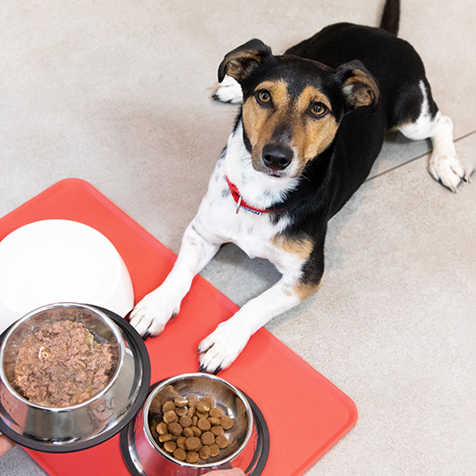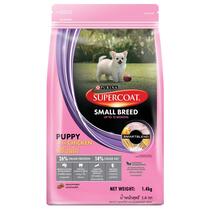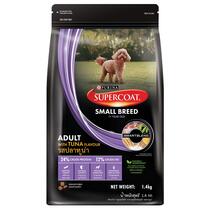
Are you worried that your dog is suffering from sensitive skin?
Both genetic factors and environmental factors can cause skin sensitivity in dogs – and identifying the reason behind your dog’s skin problems will make finding the correct treatment much easier.
Below we’ve explained how to spot the symptoms of sensitive skin, what causes it, and some of the ways you can help to keep your dog’s skin healthy.
The signs of sensitive skin in dogs
Your dog’s appearance is one the most obvious indicators of overall wellbeing. Look out for these common signs of skin sensitivity:
- Excessive scratching.
- Hair loss.
- Dry or flaky patches.
What causes sensitive skin in dogs?
Genetic factors
- Diet – some dogs are allergic to certain food groups (e.g. corn-based gluten products) and this can cause skin issues.
- Allergies – some dogs have a genetic predisposition to be more sensitive to some of the most common allergens, such as pollen, grass or dust mites.
Environmental factors
- A dry environment – indoor heating systems or air-conditioning can irritate your dog’s skin and cause it to become dry.
- Seasonal changes – some dogs have skin that is very sensitive to changes in the weather (typically, dry skin symptoms occur in the winter, while allergic reactions flare up in the spring and summer).
- Parasites – bites from fleas or parasites can irritate dogs’ skin, while mites can cause dry or scaly skin.
Allergies and diseases
- Allergic dermatitis – reactions to food, environmental irritants or grooming products can cause the dry and itchy skin of dermatitis.
- Yeast infection – scratching the ears or chewing the toes could be a sign of a yeast infection (look out for irritated, itchy or discoloured skin).
- Folliculitis – does your dog have sores, bumps and scabs on the skin? If so, your pet may be suffering from folliculitis, a condition that inflames the hair follicles.
- Impetigo – most common in puppies, this condition can lead to pus-filled blisters that can burst or crust over.
- Seborrhea – usually a symptom of another medical problem such as allergies or hormonal abnormalities, this causes a dog’s skin to become greasy and scaly.
- Ringworm – look out for circular patches with skin inflammation and hair loss, often on a dog’s head, paws, ears or legs.
- Alopecia – excessive hair loss that causes large bald spots, caused by anything from stress or poor nutrition to illness.
- Mange (or canine scabies) – a skin disorder caused by mites that causes itching, red skin, sores and hair loss, often on the face, legs and ears.
- Hot spots (or moist dermatitis) – small areas of redness, irritation and inflammation caused by allergies, insect bites, infections, or excessive licking or chewing.
If your dog is scratching or licking excessively, contact your vet for an accurate diagnosis and suitable treatment as soon as possible. If left untreated, skin conditions are likely to worsen and cause your pet more distress in the long run.
How can nutrition help your dog's sensitive skin issues?
Developed by our vets and nutritionists to promote healthy skin and coat, the diet contains skin-targeting nutrients such as amino acids, essentially fatty acids, B vitamins and zinc. It is also made with selected sources of protein to help reduce possible skin reactions associated with food sensitivity.
4 tips to treat sensitive skin in dogs
- Groom your dog – an experienced professional groomer can be a great way to get your dog’s coat (and skin) back to its best condition.
- Use specially-formulated shampoo – this will help remove allergens such as dust and pollen, but also re-moisturise the skin to combat allergies.
- Wipe your dog’s feet – this can help remove outdoor allergens before your dog enters the house.
- Vitamin E – you can buy vitamin E oil from your vet to rub directly onto your dog’s dry skin patches.
Find out more about how to groom your dog, with our easy-to-follow article.











